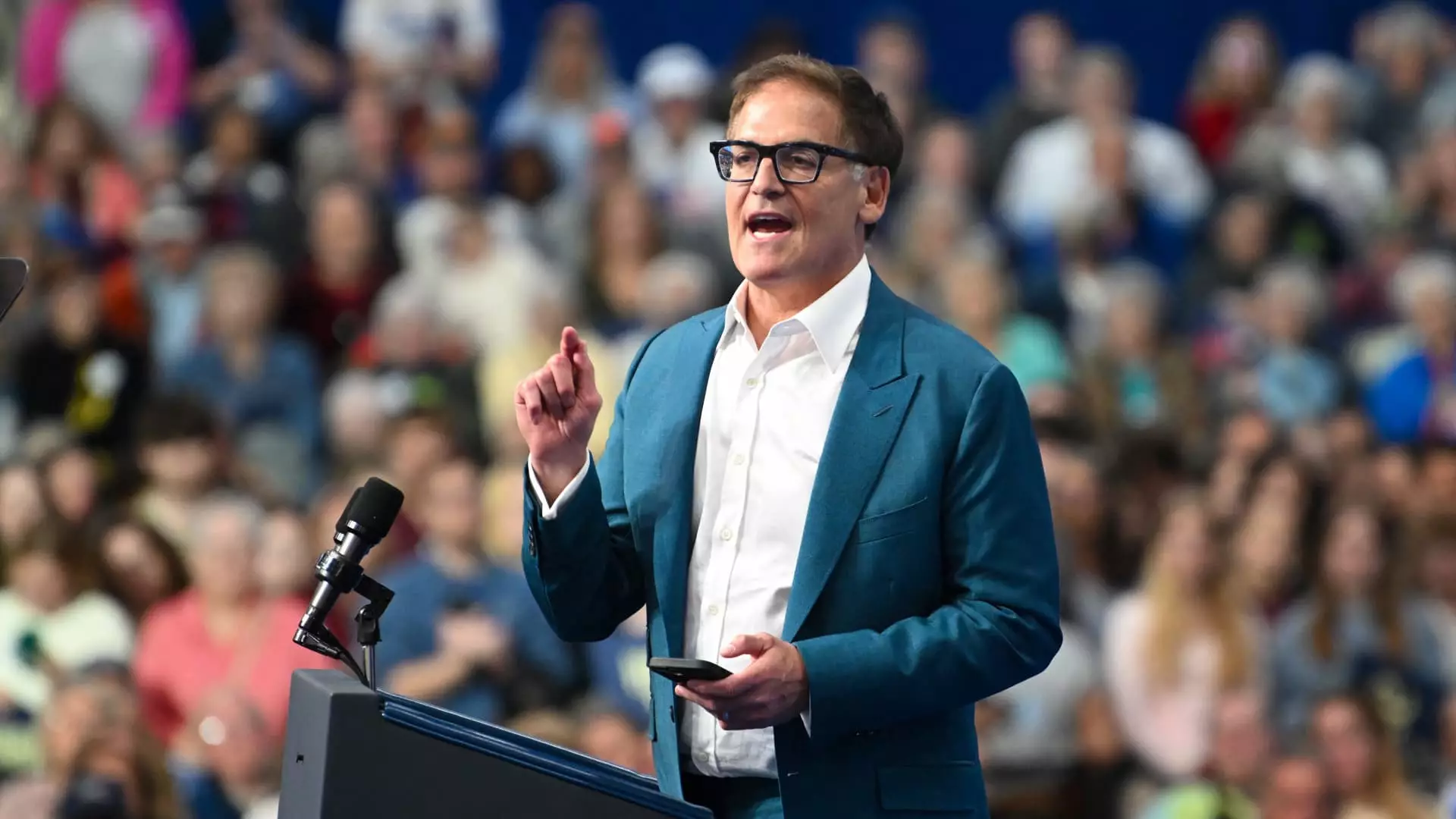Recently, billionaire investor Mark Cuban reiterated his stance of not pursuing any political role, including a position within Vice President Kamala Harris’ cabinet. In an interview on ABC’s “This Week,” Cuban stated, “I have no interest in being a politician of any type.” This firm declaration stands in contrast to his previous comments suggesting a potential interest in various governmental roles, particularly in relation to his critical view of current regulatory agencies. Cuban’s assertion that he enjoys being a “disruptor as an entrepreneur” reflects a clear separation from conventional political ambitions, indicating his preference for remaining in the arena of business innovation rather than government bureaucracy.
Cuban’s rhetoric raises questions about his previous interactions with political circles. Just a month earlier, he implied a willingness to step into the political arena by suggesting he would be a suitable replacement for Securities and Exchange Commission (SEC) Chair Gary Gensler. His statements about wanting to shake up the commission pointed to a more proactive engagement with political appointments, which he seems to now distance himself from. This inconsistency can appear puzzling; how can a figure who seems eager for reform shy away from political responsibilities? It may suggest a calculated strategy designed to maintain his brand as a political outsider while still influencing policy from the sidelines.
Although Cuban has not contributed financially to Harris’ campaign, his commitment to advocating for her candidacy demonstrates a level of political engagement that transcends mere financial support. By offering his insights during media interviews and rallies, Cuban is actively positioning himself as a prominent figure within the Harris campaign. His comments often include personal interpretations of policy, particularly relating to corporate regulations, showcasing his desire to influence the conversation around important economic issues without necessarily taking on the title of a politician.
Cuban’s advocacy extends beyond mere support for Harris; he has also articulated specific policy demands he believes a potential Harris administration should focus on. One notable suggestion was the dismissal of Federal Trade Commission Chair Lina Khan, whose aggressive consumer protection stance has sparked debate. Cuban’s belief that the current antitrust efforts are misguided demonstrates his more nuanced understanding of corporate regulation, indicating that he prioritizes an adaptable approach over rigid regulatory frameworks. This perspective positions him as a thought leader, even if he is reluctant to take on political office.
In essence, Mark Cuban represents a complex figure in the contemporary political narrative. While he fervently supports Kamala Harris and calls for necessary reforms in regulatory agencies, his insistence on avoiding political roles signals a broader reluctance many business leaders feel towards traditional politics. His preference for influence over formal role means that rather than becoming a cog in the political machine, Cuban will continue to disrupt the status quo from the sidelines, blending entrepreneurial spirit with a distinct vision for change. As the political landscape evolves, Cuban’s prominent voice may indeed serve as a catalyst for discussions on corporate governance and economic policy without the strings attached to formal political allegiance.


Leave a Reply